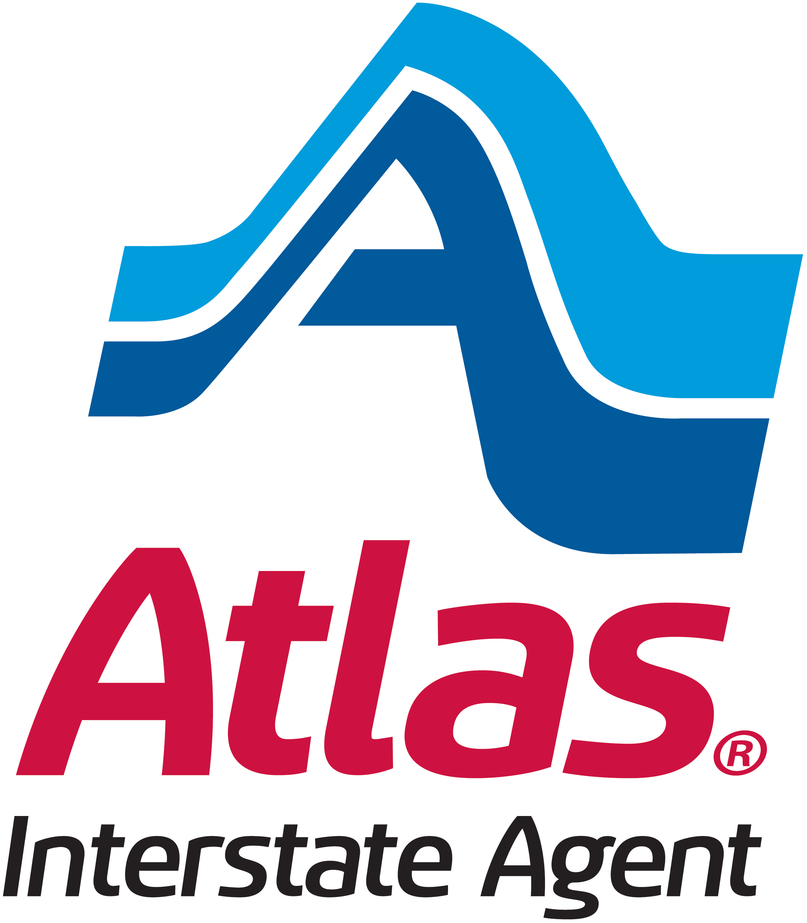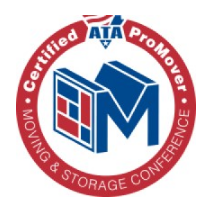Find the Best Moving Company for Your Needs and Budget

Moving to a new home marks an exciting milestone, but the process can quickly become overwhelming without proper support. Choosing a reliable moving company is crucial for ensuring a smooth, stress-free relocation experience that allows you to focus on the excitement of your new chapter.
To make an informed decision, it’s essential to carefully evaluate key factors such as the company’s reputation, services offered, pricing, and insurance coverage.
Thorough research and comparison of your options will help you find a trustworthy moving partner that aligns with your specific needs and budget, giving you peace of mind throughout the transition.
Revised Sentence: Explore the steps to assess your moving needs, research potential companies, obtain and compare estimates, and understand the moving contract and policies.
By dedicating time to the selection process and following these guidelines, you can proceed with your move and take on this new endeavor with ease.
Assess Your Moving Needs
Before beginning your search for the ideal moving company, it’s essential to pause and reflect on your specific moving needs. By gaining a clear understanding of the scope of your move, you’ll be better prepared to articulate your requirements to potential movers and secure the appropriate level of service.
Determine The Scope Of Services Required
Local Or Long-Distance Move
The distance of your relocation plays a significant role in selecting the ideal moving company. For moves within the same city or state, local movers will suffice; however, if you’re traversing state lines or covering a substantial distance, you’ll require the expertise of long distance movers.
Packing And Unpacking Services
Consider your preferences regarding the packing and unpacking process – would you rather handle it yourself or have the moving company take care of it for you? While many moving companies can pack for you, saving you valuable time and energy, it’s crucial to keep in mind that this additional service comes at a cost.
Specialty Item Handling
If you possess any items that demand extra care, such as antiques, precious artwork, or large musical instruments, be sure to inform the moving company well in advance. They may need to provide specialized packing materials or equipment to ensure the safe transport of these treasured possessions.
Evaluate Your Budget And Priorities
Balance Cost With Quality Of Service
While it’s important to consider your budget when choosing a moving company, try to avoid the temptation of automatically opting for the lowest-priced option. Bargain prices may be enticing, but they could also be a warning sign for subpar service or hidden costs.
Consider Value-Added Services
Some moving companies offer additional services that can enhance the convenience of your move, such as storage solutions, cleaning services, or furniture assembly. Determine which value-added services are most important to you and incorporate them into your decision-making process.
Research Potential Moving Companies
Exploring potential moving companies is a crucial step in finding a reliable and trustworthy mover that can handle your specific requirements with care and professionalism. Thorough research is key to ensuring a smooth and stress-free moving experience.
Gather Recommendations From Trusted Sources
Friends, Family, And Coworkers
Reach out to people you trust, such as friends, family members, and coworkers who have recently moved. Their valuable insights into their experiences with different moving companies can help you identify potential options to consider.
Real Estate Agents And Property Managers
If you’re working with a real estate agent or property manager, they may have firsthand experience with reputable moving companies in your area. Feel free to ask for their recommendations, as they often have a network of trusted professionals they can confidently refer you to.
Conduct Online Research
Read Customer Reviews And Ratings
Online reviews and ratings provide a wealth of information about moving companies.
Explore reviews on the company’s website and third-party platforms like Google, Yelp, and social media, considering both positive and negative feedback to gain a well-rounded understanding of the company’s strengths and weaknesses.
Check Better Business Bureau (BBB) Ratings
The Better Business Bureau (BBB) is a trusted resource for evaluating the reputation of moving companies. Visit the BBB website to check if the moving company you’re considering is accredited and review their rating and any complaints filed against them.
Verify Licensing And Insurance
Interstate Moves: U.S. DOT Number And FMCSA Registration
For interstate moves, it’s essential to choose a moving company that is registered with the Federal Motor Carrier Safety Administration (FMCSA) and has a valid U.S. Department of Transportation (DOT) number. You can verify this information on the FMCSA website to ensure you’re working with legitimate interstate movers.
Intrastate Moves: State Licensing Requirements
Intrastate moves within the same state are regulated by state agencies. Research the licensing requirements in your state and verify that the moving company you’re considering has the necessary licenses and permits to operate legally.
Adequate Insurance Coverage
Ensure the moving company you choose has adequate insurance coverage to protect your belongings during the move. Inquire about their liability coverage options and consider purchasing additional insurance if necessary for added peace of mind.
Carefully considering these factors and conducting thorough research will equip you to find the best long-distance moving company for your needs. Investing time in the research process can save you from potential headaches and ensure a smooth, stress-free moving experience.
Obtain and Compare Moving Estimates
Gathering and evaluating moving estimates is an essential step after researching potential moving companies. By comparing pricing and services across different providers, you can find the best value for your specific needs and budget.
Request In-Home or Virtual Surveys for Accurate Quotes
Provide a Detailed Inventory of Items to Be Moved
To receive accurate moving estimates, provide the moving company with a detailed list of the items you plan to move. Include all furniture, appliances, boxes, and any specialty items that may require extra care or packing materials, as this information will help the company provide a more accurate quote.
Discuss Any Special Requirements or Concerns
During the survey, take the opportunity to discuss any special requirements or concerns you may have with the moving company representative.
Whether it’s fragile items, valuable possessions, or access issues at your current or new home, openly communicating these details allows the company to better understand your needs and offer appropriate solutions.
Understand the Types of Moving Estimates
Binding Estimates: Guaranteed Price
A binding estimate is a guaranteed price for your move based on the inventory and services discussed during the survey. This type of estimate offers peace of mind, as the price remains fixed on moving day, provided you don’t add any items or request additional services.
Non-Binding Estimates: Potential Price Fluctuations
A non-binding estimate provides an approximate cost for your move based on the estimated weight of your belongings and the services requested. Keep in mind that the final price may fluctuate based on the actual weight of your items and any additional services provided on moving day, so it’s essential to budget accordingly.
Compare Estimates from at Least Three Companies
Evaluate Pricing, Services, and Terms
Once you have estimates from at least three moving companies, carefully compare the pricing, services, and terms offered by each.
Be on the lookout for any additional fees or charges, such as packing materials or fuel surcharges, and ensure that all the services you require are included in the estimate to avoid any surprises later on.
Be Wary of Unusually Low Estimates
While it may be tempting to choose the moving company with the lowest estimate, exercise caution when encountering estimates that seem too good to be true.
Unusually low estimates may indicate that the company is cutting corners or may have hidden fees that will be added later, potentially leading to unexpected costs and subpar service.
By diligently obtaining and comparing moving estimates from multiple companies, you can make an informed decision and accurately estimate your moving costs.
This process helps ensure that you choose a moving company that offers the best value for your specific needs and budget, setting the stage for a smooth and successful moving experience.
Assess The Moving Company’s Reputation And Experience
Choosing a moving company is a big decision, and evaluating their reputation and experience is essential for a smooth, stress-free relocation. By investigating their track record, you can select a reliable and trustworthy partner to handle your precious belongings.
Investigate The Company’s Complaint History
FMCSA Mover Search Tool For Interstate Moves
For interstate moves, the Federal Motor Carrier Safety Administration’s (FMCSA) Mover Search Tool is an invaluable resource. This tool allows you to review any complaints filed against the moving company and see how they were resolved, giving you peace of mind.
Local Consumer Protection Agencies
For local moves, turn to local consumer protection agencies, such as the Better Business Bureau (BBB), for insights into a moving company’s reputation. Don’t hesitate to reach out and inquire about any complaints or issues reported against the company you’re considering.
Evaluate The Company’s Experience And Expertise
Years In Business And Industry Specialization
A moving company’s years in business and area of specialization speak volumes about their expertise. Look for a company with a long history and experience in the type of move you require to ensure a smooth and efficient process.
Membership In Professional Associations (e.g., AMSA)
Membership in professional associations, like the American Moving and Storage Association (AMSA), often indicates a moving company’s commitment to high standards and professionalism. Checking for these affiliations can give you added confidence in your choice.
Inquire About Their Customer Service And Communication
Availability And Responsiveness
Pay close attention to a moving company’s customer service and communication during the estimation and planning process. A company that is easy to reach and promptly addresses your concerns is more likely to provide a positive moving experience.
Clear And Transparent Communication
Transparency is essential in pricing, services, and potential challenges that may arise during your move. Seek out a moving company that communicates clearly and openly to help you make informed decisions and avoid any surprises down the road.
By thoroughly assessing a moving company’s reputation and experience, you can choose a partner you trust to handle your belongings with care and professionalism.
Taking the time to invest in this critical step will help ensure a successful and stress-free move, allowing you to focus on the excitement of your new home.
Understand The Moving Contract And Policies
Before signing a contract with a moving company, it’s essential to thoroughly review and understand the terms and policies. Taking the time to do so will help you feel confident about your rights, responsibilities, and the services you’ll receive during your move.
Review The Contract Terms And Conditions
Services Included And Excluded
Carefully read through the contract to clearly understand which services are part of your moving package and which ones aren’t included. This information will help prevent any surprises or unexpected fees on moving day.
Payment Terms And Schedules
Familiarize yourself with the payment terms and schedules outlined in the contract. Ensure you know when payments are due, accepted payment methods, and any potential late fees or penalties.
Clarify Liability Coverage And Valuation Protection
Released Value Protection Vs. Full Value Protection
Understanding the difference between Released Value Protection and Full Value Protection is crucial. While Released Value Protection is the basic coverage required by law, it only provides minimal protection for your belongings. Full Value Protection offers more extensive coverage but may come at an additional cost.
Additional Insurance Options
For high-value or sentimental items, consider additional insurance coverage for extra peace of mind. Discuss your options with your moving company and determine if their insurance offerings suffice or if you should explore coverage from a third-party provider.
Inquire About Cancellation And Refund Policies
Deadlines For Changes Or Cancellations
Life can be unpredictable, so it’s important to know the moving company’s policies on changes or cancellations to your moving date or services. Ask about any deadlines for making changes and potential fees for last-minute adjustments.
Refund Eligibility And Processing
Clarity in refund policies is essential. Inquire about the moving company’s refund eligibility requirements and the process for requesting a refund, so you know what to expect.
Thoroughly reviewing and understanding the moving contract and policies is a critical step in ensuring a smooth and stress-free move. Don’t hesitate to ask questions or seek clarification from the moving company to address any concerns upfront and avoid potential issues down the road.
Frequently Asked Questions
- What are the red flags to watch out for when choosing a moving company?
When selecting a moving company, be cautious of those that demand substantial upfront deposits or have a history of unresolved complaints. It’s also crucial to be wary of companies lacking proper licensing and insurance or those with poor Better Business Bureau ratings.
Avoid companies that provide estimates without first conducting an in-person or virtual survey of your belongings, as this can lead to inaccurate pricing and potential issues during the move.
- How far in advance should I book a moving company?
To ensure availability and secure your preferred moving date, it’s advisable to book a moving company at least 4-8 weeks before your desired move, especially during the peak moving season (May-September).
For long-distance moves or relocations during busy times, consider making arrangements even earlier to avoid any last-minute complications or limited options.
- What is the difference between a binding and non-binding moving estimate?
A binding estimate provides a guaranteed price for the move, based on the inventory of items provided by the customer, and the moving company cannot charge more than the agreed-upon amount unless additional services are requested.
Conversely, a non-binding estimate is an approximation of the cost, subject to change based on the actual weight of the shipment and any additional services required, which may result in a higher or lower final price than initially quoted.
- Are there any additional fees or charges I should be aware of?
Depending on your specific moving needs, there may be additional fees or charges to consider, such as costs for packing materials, specialty item handling (e.g., pianos, artwork), long carry fees, and shuttle services.
To avoid surprises, openly discuss all potential fees with your moving company and thoroughly review your estimate, and don’t hesitate to ask questions and clarify any aspects of the pricing that you’re unsure about.
- What steps can I take to ensure a smooth and efficient move?
Start by decluttering and organizing your belongings well in advance, creating a detailed inventory of your items and clearly labeling boxes with their contents and destination room.
Remember to notify your utility providers of your move and arrange for service transfers, and maintain open communication with your moving company, promptly addressing any concerns or questions that arise to ensure everyone is on the same page throughout the process.
Conclusion
Choosing the right moving company is one of the most important decisions you’ll make during your relocation process. By taking the time to carefully assess your needs, research potential movers, compare estimates, and evaluate their reputation and experience, you can select a company that best suits your priorities and budget.
Investing effort in the selection process is essential for ensuring a smooth, stress-free move and protecting your belongings during transit. A trustworthy moving company will prioritize transparency, maintain open lines of communication, and work diligently to ensure your satisfaction from start to finish, providing you with peace of mind during this exciting life change.
Related Articles
Moving Out Soon? Your Guide to Start Saving Today

Moving out is a thrilling milestone that brings both excitement and financial challenges. Proper preparation and strategic saving are crucial for a smooth transition to independent living, requiring more than just accumulating a lump sum. Beginning this process requires a thorough approach, from evaluating your current financial circumstances to preparing for lasting stability. By implementing […]
Read MoreFirst Time Moving Out? Your Essential Checklist & Guide

Stepping out on your own for the first time is a thrilling adventure that marks the beginning of true independence. It’s a journey filled with excitement, but it also comes with its fair share of challenges that require thoughtful preparation and planning. Moving from your family home to your own space involves more than just […]
Read More




